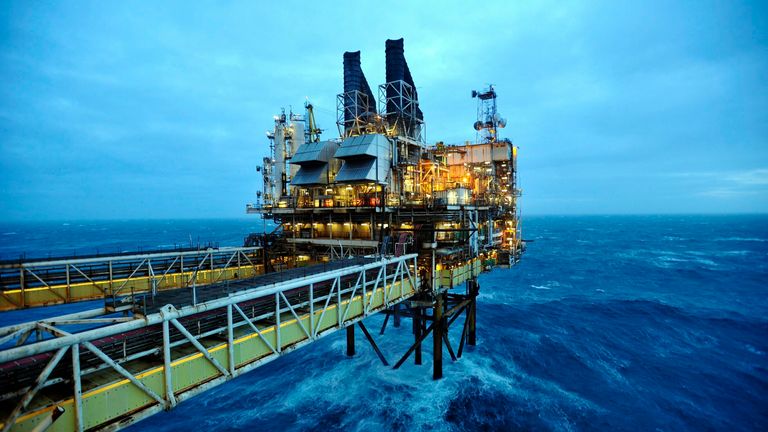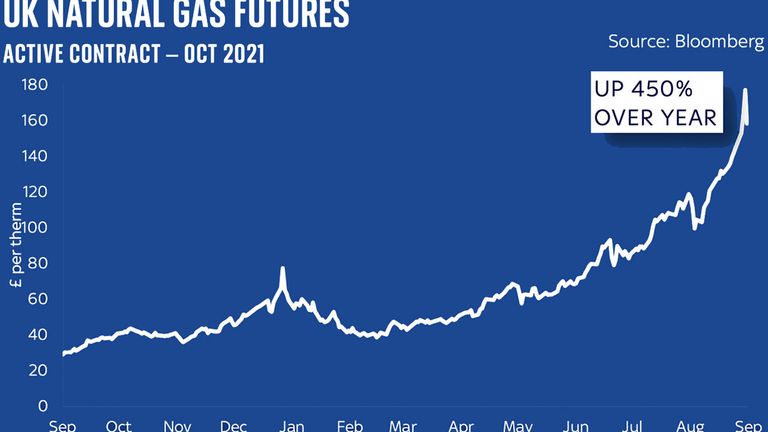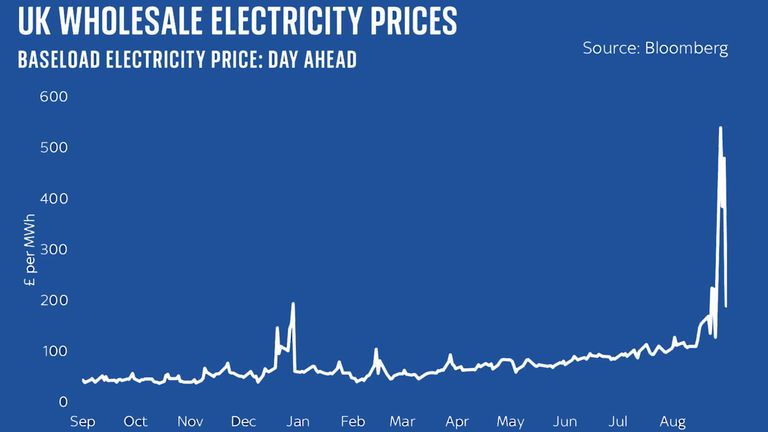What’s behind the energy crunch – and why it’s hurting UK industry
Economic predictions are often fraught with risk, but here’s one that feels quite safe: the fertiliser company which has just shut down production at two of its UK plants will not be the last business to do so.
In the coming months we can expect many more industrial plants to temporarily cease production.
Why? Because high energy users often do so when energy prices are high, and energy prices are very, very high right now.
As of this moment, UK natural gas prices are running at about £162 per therm.
To put that into perspective, in late August, it was around £100 per therm.
For most of the past decade it has been closer to £40 per therm.
It is not just that gas prices are at unprecedented levels, but that they have risen astonishingly fast. In the past year they are up about 455%.
There are plenty of reasons for high energy prices.
Russia seems to have been stifling supply in recent months.
A number of gas platforms in the North Sea have been shut down for routine maintenance work which was put off during COVID-19.
European stockpiles of gas are unusually low for this time of year.
Then add on the fact that the wind speed has been somewhat lower than usual this September, which in turn means the UK cannot rely as much on wind turbines for its electricity, and therefore has to fall back on gas-fired power stations.
The final straw came earlier this week when one of the two electricity interconnector cables that brings power from France to the UK was damaged in a fire, putting it out of action until the spring.
Put it all together and perhaps it’s no surprise that energy prices – whether that’s gas or electricity – are so high at the moment.
In practice, it may take some time for these costs to feed through to domestic customers: most energy providers fix in their wholesale costs long in advance – though for some these price rises could prove unsustainable.
However, industrial energy users tend to be more sensitive to these price shifts, which is why many are already closing or reducing production.
And given the intricacy of today’s complex supply chains, such closures can often have unexpected consequences.
One such consequence of the closure of those fertiliser plants is a sudden shortage of carbon dioxide gas – a byproduct of their processes.
That, in turn, is causing difficulties for the poultry and livestock sectors, which use CO2 during the slaughter process.
There is a very real consequence that high gas prices, strange as it may sound, may have sparked a chain reaction which could result in the mass cull of many thousands of animals.
What is unnerving is that this is only the beginning of an autumn and winter which is likely to be characterised by a shortage of gas and by high energy prices, with potential disruption across many parts of Britain’s economy.





